-
Content count
913 -
Joined
-
Last visited
-
Days Won
6
Posts posted by Sir Darius the Clairvoyent
-
-
(tbh i have barley skimmed this thread, but i think flow is the term/state you are searching for?) -
But If we sumarise some of the thread, it seems the concept of eudomnia/perfecting our nature/doing our duty/being us self are themes we agree upon?
I am not sure this question is possible to answer, but it could be an interresting to take this one step further. Is there a purpose/function/higher meaning by achieving this? Lets illustrate: a hammer is used to hit nails. A good hammer does this effectivley. Lets say the nails purpose was to be used to hang up a piece of art. But is there a purpose of the art piece? (Speaking metaphoically ofc.)
-
Yes ive heard similar stories from the pasific islanders. They remember song that include stuff so foreign that they must be very old, in addition it helps navigating etc.
You are right about bhagavad gita being a song. If im not mistaken, gita is sanskrit for song. If you look at much of the earliest epics youll also find that they often rhyme.
"When they had sung the hymn, they went out to the Mount of Olives" Matthew 26.30
this one is from 3th century greece. It is like a time machine. Same goes for nursey rhymes, sayings... Let me share with you my fav folk song:
And this is the oldest written norse song we know about:
The norse had «rap battles,» called flyting: Flyting or fliting (Classical Gaelic: immarbág) (Irish: iomarbháigh) (lit. "counter-boasting"),[3] is a contest consisting of the exchange of insults between two parties, often conducted in verse.[4]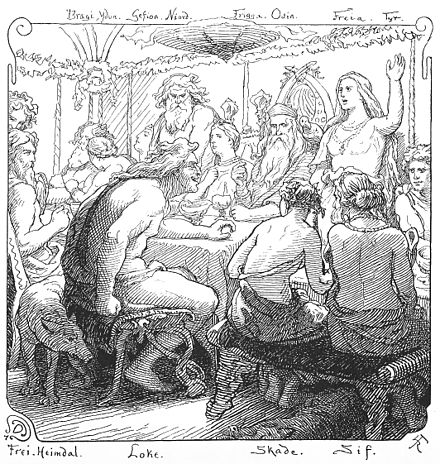
The Norse gods Freyja and Lokiflyte in an illustration (1895) by Lorenz Frølich
Not to mention islam, that is almost entirely oral, is it not? Ive heard it claim that every muslim can recite the entire quran by the age of… very, very young. As you know, they also claim to have an unbroken chain back to the prophet, and If im not mistaken, its pretty well in tact?
-
@Nungali i have a segment about that to in my journal, hope its entertaining and that im not boring you to death:
SpoilerI know that I hung on a windy tree nine long nights, wounded with a spear,
dedicated to Odin, myself to myself, on that tree of which no man knows from where its roots run. No bread did they give me nor a drink from a horn, downwards I peered; I took up the runes, screaming I took them, then I fell back from there.
Runatal 139-140
Now, as I sit down to write, I think of the stereotypical writer known from various movies and series, exemplified in Californication. This tortured and brilliant soul, romantic and quick-witted in dialogue. He who always has the same problem, writer's block. Self-insertion, that's the only way I can describe it. And for some reason, I can't imagine a wandering storyteller or bard sitting down and staring at a blank page, banging their head against the wall in a self-aggrandizing but simultaneously self-pitying little porn movie with themself as the protagonist.
From Greek, we have the word "muse," used to describe a person who breathes life into art. When Archimedes found a genuine gold object, he exclaimed, "eureka," meaning "I found it." In Norse mythology, the mead of poetry is said to bestow the gift of poetry and wisdom. In the Irish folktale "The Devil and the Poor Scholar," the protagonist exchanges his soul for a pen that wrote the most beautiful stories. He never got it back, but that's life.
The oldest stories are not constructed, but organically developed and subsequently recorded. They have been sung for generations. The excessive and boring parts were forgotten, some things were changed, others added or exaggerated. Take Yggdrasil, the steed of the terrible one (Odin's horse), as we know it in the North. The tree that goes from Midgard up to the seventh heaven and has roots deep, deep down to the underworld. At the root of Yggdrasil, we find Mimir's well, the source of unfathomable knowledge, from which Odin sacrificed an eye for a sip.
-
10 hours ago, Nungali said:'Having a rational life' - in the context of eudamonia . There are many aspects which 'cultivate' eudamonia , some come together that seem to describe a process known as 'The True Will' , in magic and the 'khvarenah' of Zoroastrianism ( probably where the idea first originated in written history . ) In short , knowing your purpose, what you incarnated to achieve , what your special skills and offerings will be ... its fulfilling your 'spiritual purpose' . Its your 'inherent genius' . ( Also look up the original meanings of such words , ie. genius ) Of course fulfilling this gives an abiding satisfaction , more than mere happiness from any material pleasure does . Also some postulate , you might find great success in this , as that would be natural ( and your society worked that way ! ) .
So my concept of 'rational' , in a more modern context, would be something like ; " Does that makes sense that I am ... (or ) ... why the hell am I ... going to work everyday to a job I dont like ? or living in a place or having a lifestyle that I dont like / is stifling me is ... whatever . Its seems irrational , as does so much of how our societies 'work' . But if YOU feel your life ( and your life in response to these societies ), then that is rational to you .
The Greeks also associated it with concepts like a guardian angel , a connection to 'spirit; . Again 'genius' enters the formula ;
"
genius (n.)
late 14c.
tutelary or moral spirit" who guides and governs an individual through life, from Latin genius "guardian deity or spirit which watches over each person from birth; spirit, incarnation; wit, talent;" also "prophetic skill; the male spirit of a gens," originally "generative power" (or "inborn nature"), from PIE *gen(e)-yo-, from root *gene- "give birth, beget," with derivatives referring to procreation and familial and tribal groups.
Many a 'genius' will tell you it was not actually them that did it, they where a channel , or some similar analogy . A great artist or musician might say the same .
Good post. I agree with the Genius segment - true beauty is created out of inspiration, and god knows where that comes from.
On finding your «will»… we have had a little convo about this on pm (skillset, inspiration, what gives you a sense of meaning etc.), but do you think you could expand on it?
And please dont tell me to burry 50$ or sacrifice a goat, im not ready 🙏
-
 1
1
-
-
@thelerner agreed 💯
___________________
feeling inspired tonight:Jesus said you know the tree by the fruit. Wouldnt the same apply to actions (the tree) and the result (the fruit?
___________________
As Jordan B. Peterson wrote in "12 Rules for Life":
"The scientific world of matter can be reduced, in some sense, to its fundamental constituent elements: molecules, atoms, even quarks. However, the world of experience has primal constituents, as well. These are the necessary elements whose interactions define drama and fiction. One of these is chaos. Another is order. The third (as there are three) is the process that mediates between the two, which appears identical to what modern people call consciousness. It is our eternal subjugation to the first two that makes us doubt the validity of existence — that makes us throw up our hands in despair and fail to care for ourselves properly. It is a proper understanding of the third that allows us the only real way out."
_______________
Sharing a segment from my journal:Dragon Slayer
In "The Horse, the Wheel, and Language" (p. 134), David Anthony describes the warrior, the third figure, Trito:
"After the world was made, the sky-gods gave cattle to the third man (Trito). But the cattle were treacherously stolen by a three-headed, six-eyed serpent (Negation). The third man entreated the storm god to help get the cattle back. Together they went to the cave (or mountain) of the monster, killed it (or the storm god killed it alone), and freed the cattle. Trito became the first warrior. He recovered the wealth of the people, and his gift of cattle to the priests ensured that the sky gods received their share in the rising smoke of sacrificial fires. This ensured that the cycle of giving between gods and humans continued."
The myth of the hero who ventures into the unknown, slays the monster, and is rewarded is so ingrained in us that it requires no explanation: we know. Hercules and Hydra, Beowulf and Grendel, Sigfried the dragon slayer. This has its roots in the Indo-European tradition. A myth is more than a list of causes and effects. In "The Hero with a Thousand Faces" (1949), Joseph Cambell wrote the following:
"A hero ventures forth from the world of common day into a region of supernatural wonder: fabulous forces are there encountered, and a decisive victory is won: the hero comes back from this mysterious adventure with the power to bestow boons on his fellow man."
The dragon, the ultimate predator: a flying, fire-breathing reptile guarding priceless treasures. It makes little logical sense, but stories of dragons and heroes have fascinated millions of people for thousands of years. The story of the hero who ventures into the unknown, confronts his greatest fears, and triumphs, both personally and for the good of the community, is an ideal. Something we strive for, a truth. The ideal is, in my opinion, the core of storytelling. It tells us about attitude, courage, and justice. Conquer fear, and you will be rewarded.
-
 1
1
-
-
10 minutes ago, Mark Foote said:…I say that determinate thought is action. When one determines, one acts by deed, word, or thought.
(AN III 415, Pali Text Society Vol III p 294)
And what… is the ceasing of action? That ceasing of action by body, speech, and mind, by which one contacts freedom,–that is called ‘the ceasing of action’.
(SN IV 145, Pali Text Society Vol IV p 85)
…I have seen that the ceasing of the activities is gradual. When one has attained the first trance, speech has ceased. When one has attained the second trance, thought initial and sustained has ceased. When one has attained the third trance, zest has ceased. When one has attained the fourth trance, inbreathing and outbreathing have ceased… Both perception and feeling have ceased when one has attained the cessation of perception and feeling.
(SN IV 217, Pali Text Society vol IV p 146)
I think the cessation of ("determinate thought" in) "feeling and perceiving" (action of the mind) may be out of reach for me, at this point. Nevertheless, Gautama described a way of living that incorporates regular experience of the cessation of ("determinate thought" in) inbreathing and outbreathing (action of the body), and he said that way of living was:
... something peaceful and choice, something perfect in itself, and a pleasant way of living too.
(SN V 320-322, Pali Text Society V p 285)That's my aim now, but I wouldn't get out of bed if the cat didn't insist...
Remind me of Zoroastrianism. Ahura Mazda represents truth, beauty, and creation, and his (ours?) battle against Angra Mainy. Good thoughts leads to good words, and good words leads to good action. With fire and truth we shall defeat the forces of evil/the lie haha.
-
Earlier in life, i used to set concrete, long term goals. Lets say, for example, that I want to loose 10kg and be able to run 5km in 20 min. Than, I would ask my self when have free time on my hand: what is going to lead me close to my goal: videogames or a hike? Reading a book or watching porn? That method worked well for me. I have also asked some highly motivated and successfull friends where they find their motivation, and they usually answer my setting clear goals and that doing a good job is inherently better than doing it badly, or not doing it all. The science is pretty clear on the impact of goalsetting as well. But i am still looking for "the highest goal," the top of the pyramid.
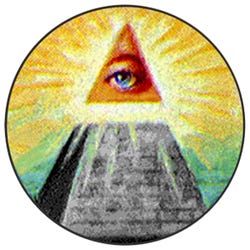
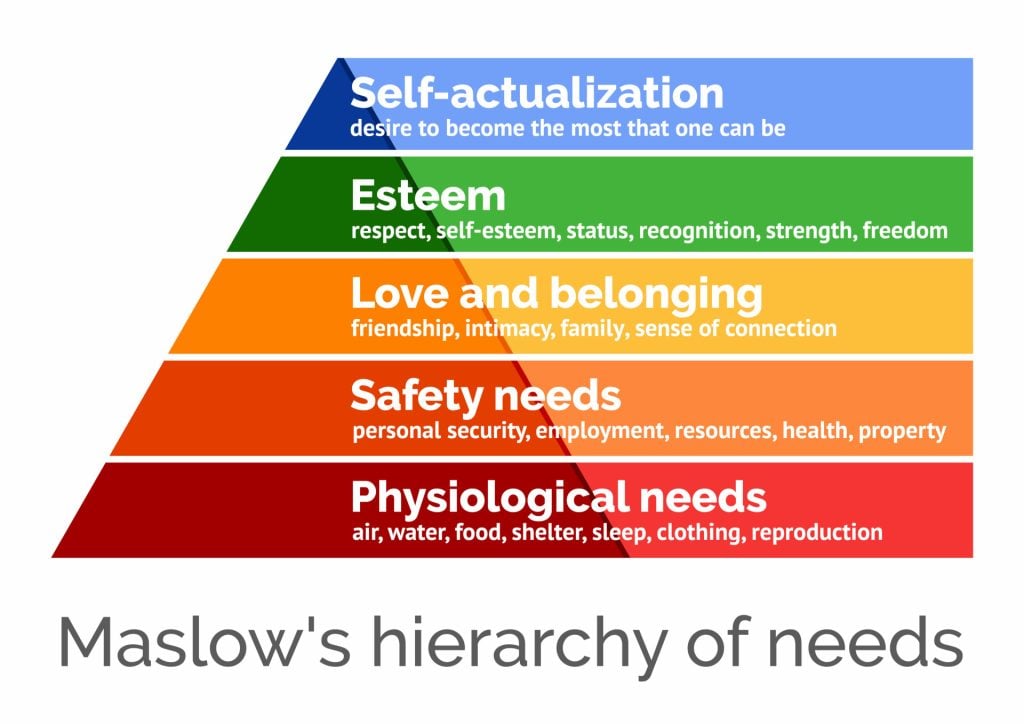
-
 1
1
-
-
On 10.10.2023 at 9:50 PM, stellarwindbubble said:Do you remember, how Aristotle defined „rational“ again?
You raise great and interresting points, and id like to hear your take on it aswell. Im kind of short of time, so in this post, I will probably not give the questions the time and contenplation it deserves. Not to mention how wast the topic is, and how many traditions and individuals who approach it differently.
Anyway, lets give it a go. So, hoe did Aristotle define rationality and man? He believed that the distinguishing feature of humans is their capacity for reason. Rationality enables humans to think, learn, and make choices based on moral and ethical principles. Rationality, for Aristotle, involved the ability to deliberate and make choices. Humans could consider various options, weigh their consequences, and make decisions based on their rational judgment. Rationality was the means by which individuals could understand and apply ethical principles, such as courage, justice, and temperance, to their lives. The ultimate goal of this, was eudomnia.
(some help from chatgpt here)
What I think is just as important, is the concept of akrasia (non-management). This means to me one of two things: either you are being controlled by others, or you lack the discipline yourself, because, if you are free and disciplined, why would you act against your own will/whats best for you? For a action to be virtuous, it has (according to my understanding), be done for the sake of it, and not because of fear of punishment or external reward.
QuoteExtrinsic motivation, coming from external sources like rewards and recognition, can work well for short-term goals. However, it can backfire and reduce intrinsic motivation, especially for complex tasks. Autonomy, immediate rewards, and the way rewards are perceived matter. Individual responses vary, and the balance between intrinsic and extrinsic motivation is crucial for long-term success and well-being.
Intrinsic motivation, driven by personal interest and satisfaction, tends to be more enduring and fulfilling than extrinsic motivation. It fuels creativity and persistence, especially in complex tasks. Autonomy and a sense of personal significance enhance intrinsic motivation, making it a valuable force for long-term success and well-being.
(chatgpt)
I am writing a paper on wisdom, leadership, and motivation, so this topic is closely related. So, rationality determines the correct action in a given situation. This is pretty much identical to (one of the many) definitions of wisdom:
QuoteWisdom, sapience, or sagacity is the ability to contemplate and act productively using knowledge, experience, understanding, common sense, and insight.[1] Wisdom is associated with attributes such as unbiased judgment, compassion, experiential self-knowledge, self-transcendence, and non-attachment,[2] and virtues such as ethics and benevolence.[3][4]
(wiki)
Let's say you're having dinner, and the choice between something fresh and healthy, and something unhealthy, quick, cheap, and delicious. What is the correct (rational/wise) choice? It would depend on your goals, right? If your goals is to feel good, be healthy and in shape, look good, etc, then the healthy option is the correct option. If your goal is to feel pleasure, have a feast with loved ones, and enjoy the moment, there is a case to be made for the second option.
For Aristotle, what was on top of the pyramid was eudaimonia: it was good in itself, and if ought to use our rationality to make choices in line with our nature/purpose, illustrated belove:
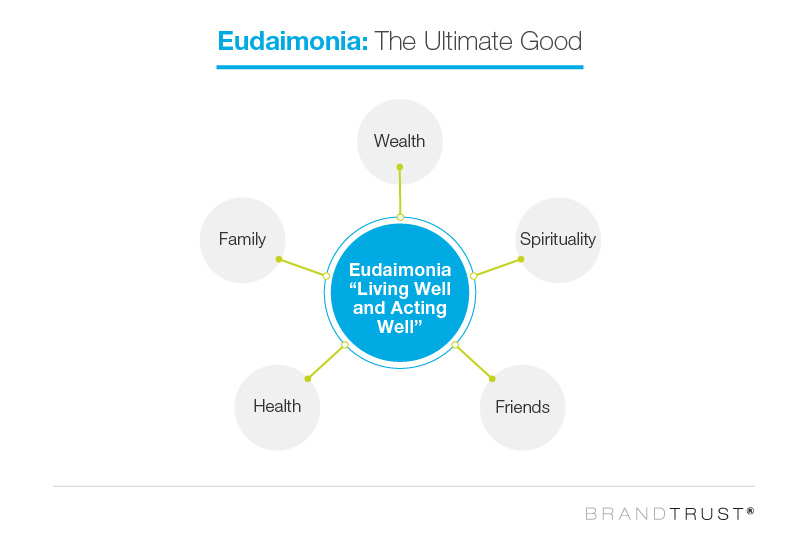
I have a problem with this, or rather... a small disagreement. (1) I don't belive that these five aspects are fundamental for every human, in every situation, all the time. Also, they sometimes come in conflict with each other. That's why I defined wisdom as the ability to balance different, sometimes opposing, needs and interests. To illustrate: short-term vs. long-term goals, your personal vs that of your employer, your responsibility to society at large etc...
The thing is, humans are complicated, and I don't know whats on top of the hierarchy of values (that's why I made this thread). But if we drop the human aspect and look at this beautiful anecdote, I think we are getting somewhere:
QuoteNow I remember one other European thinker, for whom reason or rationality was the decision process (to (re)act or not (re)act) to one’s emotions or passions. That rationality would always be a matter of personal choice, and never sth. objective.
I agree with the thinker, do you remember his name?
QuoteWhat could be the measuring criteria for being unduly or righteously absorbed?
Im not sure this works in English, but the Norwegian word for virtue is "dyd." Dyd is related to dydighet, witch means functioning (something like that, anyway.) So a thing is good if it serves its functions, is one possible answer.
Forgive me for quoting the most used and abused cliches, but here we go:
"God, grant me the serenity to accept the things I cannot change,
the courage to change the things I can,
and the wisdom to know the difference."“Yesterday is history, tomorrow is a mystery, but today is a gift. That is why it is called the present.”
Meditations by Marcus Aurelius:
Quote- The more we value things outside our control, the less control we have.
- How ridiculous and how strange to be surprised at anything which happens in life.
- You have power over your mind – not outside events. Realize this, and you will find strength.
- Settle on the type of person you want to be and stick to it, whether alone or in company.
- Consider at what price you sell your integrity, but please, for God’s sake, don’t sell it cheap.
-
I am doing some writng for my self, and so far, this is the closest answer to nihilism ive found:
For him (Aristotle), humans were the rational beings. Through reason and virtuous action, we can approach the perfection of our nature. This involved friendship, self-realization, health, prosperity – things that are good in themselves. Virtuous (arete) action leads to eudaimonia. This is not a feeling like happiness, but a state of human flourishing. The opposite here would be akrasia (lack of self-control).
-
 3
3
-
-
Simallarily christians are "born again." Jesus said that eternal life comes from knowing the Father, so in once sense i can agree with you, it is not all the kingdom of God, as all havent received "the spirit."
Luke 17:21: “Once having been asked by the Pharisees when the Kingdom of God would come, Jesus replied,’ The kingdom of God does not come from your careful observation, nor will people say, ‘Here it is’ or “There it is’ because the Kingdom of God is within you.”
What can i say, the text seems to open for many interpertations
___________
Whats more interresting then what the flesh symbolises, is the wine/blood
 In the book "the immortality key," it is argued convincingly that it refers to the wine of Dionysus. Same goes for Soma, beer with urgot, various mushrooms and the mead of poetry: it is an experience that grants death before death/being born again/awakening/ressuraction/immortality, not a book (for the most part, all though i have gotten a lot from various texts and conversations as well).
In the book "the immortality key," it is argued convincingly that it refers to the wine of Dionysus. Same goes for Soma, beer with urgot, various mushrooms and the mead of poetry: it is an experience that grants death before death/being born again/awakening/ressuraction/immortality, not a book (for the most part, all though i have gotten a lot from various texts and conversations as well).
Pictures in spoiler. The last one depicting Oding transformed as an eagle, shitting some of the mead of poetry down at humanity on his escape after having retrieved the mead from a couple of dwarfs
 Spoiler
Spoiler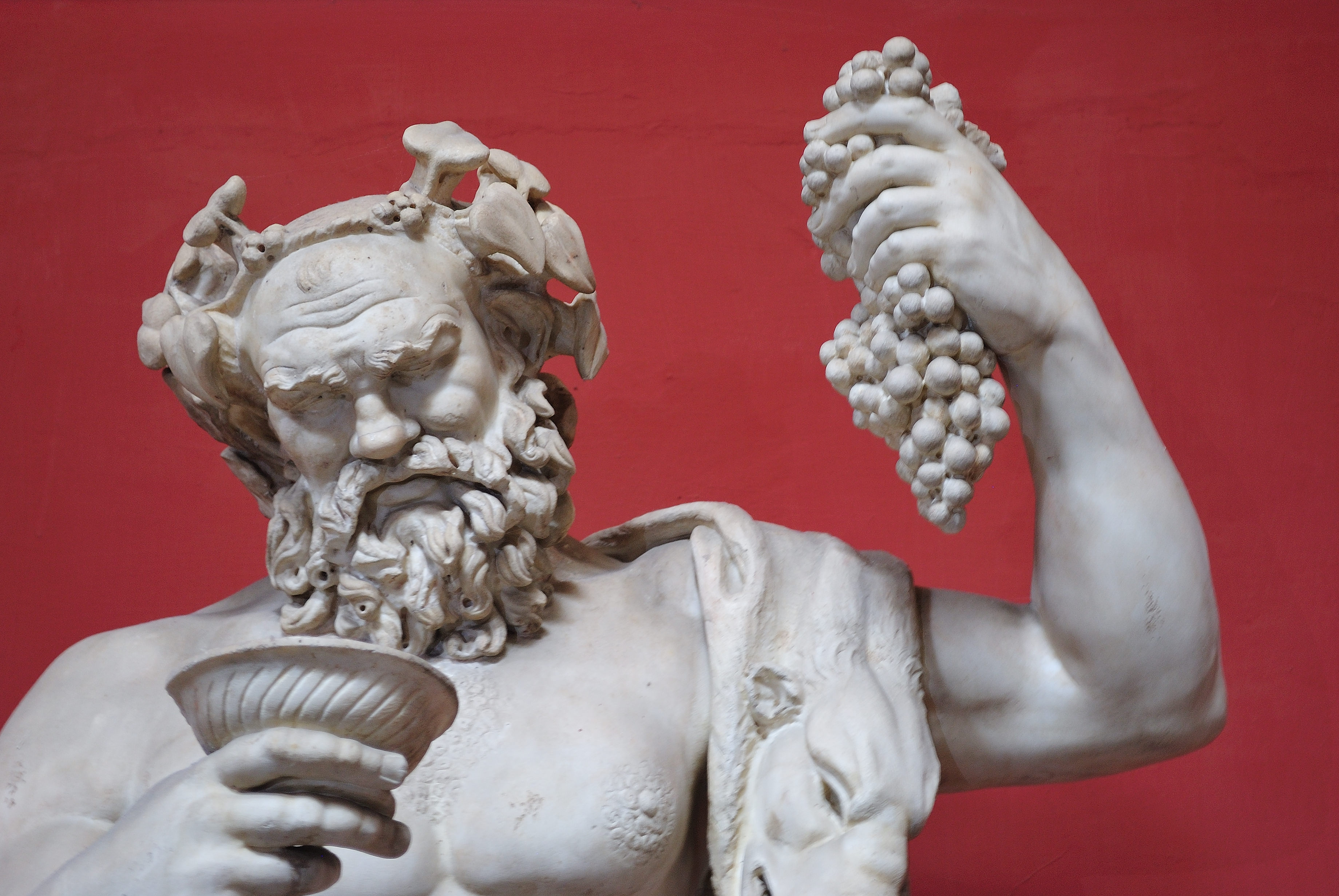
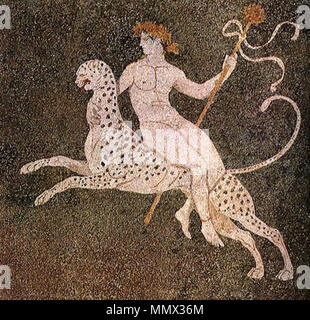
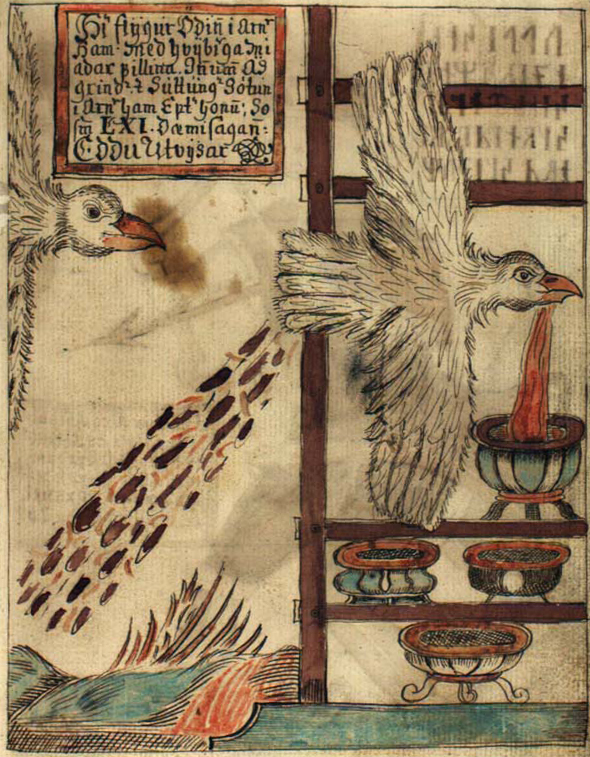
-
 1
1
-
-
Whats your motivation to get Out of bed? Whats your higher aim? Do you belive its a universal answer to this? Why do good instead of bad?
Ill kick of the discussion with two of my favorite qoutes:
“I don't believe people are looking for the meaning of life as much as they are looking for the experience of being alive.”
― Joseph Campbell
“No one imagines that a symphony is supposed to improve as it goes along, or that the whole object of playing is to reach the finale. The point of music is discovered in every moment of playing and listening to it. It is the same, I feel, with the greater part of our lives, and if we are unduly absorbed in improving them we may forget altogether to live them.”
― Alan Watts
-
 7
7
-
 1
1
-
-
14 hours ago, Daniel said:{ kingdom { flesh { kingdom } flesh } kingdom } ?
{ flesh { word } flesh } ?
I would just say kingdom. (Kingdom (kingdom) kingdom)
I am not claiming that i have the one and only truth. I havent read a lot of the bible either. I am not to interrested in how x church says scripture should be interpet, from beggining to end, either. But there is a lot of gold in there.
If we call it monist or pantheism or any or any other term is ultimatley not that important.
But when you ask me what flesh symbolies… it symbolies flesh. Its not even a symbol, flesh is flesh. And Christ literally said he had become flesh (Thomas 33).
You asked about enlightenment as well. I feel like a dick saying this, but i feel i have «awakened.» Useing these terms makes it sound much grander and mystic than what i belive it is. For me it just mean realising that what you are, is fundementaly awarness. But it is not, i belive, something you can reason you way into, but an sudden insight… «gnosis».
Spoiler1. And he said, "Whoever discovers the interpretation of these sayings will not taste death."
2. Jesus said, "Those who seek should not stop seeking until they find. When they find, they will be disturbed. When they are disturbed, they will marvel, and will reign over all. [And after they have reigned they will rest.]"
3. Jesus said, "If your leaders say to you, 'Look, the (Father's) kingdom is in the sky,' then the birds of the sky will precede you. If they say to you, 'It is in the sea,' then the fish will precede you. Rather, the (Father's) kingdom is within you and it is outside you.
When you know yourselves, then you will be known, and you will understand that you are children of the living Father. But if you do not know yourselves, then you live in poverty, and you are the poverty."
(…)
28. Jesus said, "I took my stand in the midst of the world, and in flesh I appeared to them. I found them all drunk, and I did not find any of them thirsty. My soul ached for the children of humanity, because they are blind in their hearts and do not see, for they came into the world empty, and they also seek to depart from the world empty.
But meanwhile they are drunk. When they shake off their wine, then they will change their ways."
29. Jesus said, "If the flesh came into being because of spirit, that is a marvel, but if spirit came into being because of the body, that is a marvel of marvels.
Yet I marvel at how this great wealth has come to dwell in this poverty."
33. Jesus said, "What you will hear in your ear, in the other ear proclaim from your rooftops.
After all, no one lights a lamp and puts it under a basket, nor does one put it in a hidden place. Rather, one puts it on a lampstand so that all who come and go will see its light."
43. His disciples said to him, "Who are you to say these things to us?"
"You don't understand who I am from what I say to you.
Rather, you have become like the Judeans, for they love the tree but hate its fruit, or they love the fruit but hate the tree."
44. Jesus said, "Whoever blasphemes against the Father will be forgiven, and whoever blasphemes against the son will be forgiven, but whoever blasphemes against the holy spirit will not be forgiven, either on earth or in heaven."
113. His disciples said to him, "When will the kingdom come?"
"It will not come by watching for it. It will not be said, 'Look, here!' or 'Look, there!' Rather, the Father's kingdom is spread out upon the earth, and people don't see it."
http://gnosis.org/naghamm/gosthom.html
I cant tell you what Gods will is, or If he exists for sure. I can only tell you what these sayings mean to me.
-
 1
1
-
-
The flesh is christ
-
9 minutes ago, old3bob said:if you are an electronics whiz or a reasonable person on this subject then I'm Moses...
more qoutes for you:
is my ambition to say in ten sentences what others say in a whole book.
Friedrich Nietzschei often find that twice as much can be said with half the Words. Its more about dropping the bs and getting to the core.-
 1
1
-
-
-
45 minutes ago, mat said:A little of topic here, but come to think of something: according to christ the only unforgivable sin is denying the holy spirit, the divine inside us.
edit, continuing: so, If eternity is now, heaven and hell is eternal, the holy spirit fell from heaven like a dove and the only unforgivable sin is denying it: shouldnt we conclude that embracing it is what leads to higher conciousness?
-
-
I see it is as the trinity. The father (god), the son (the logos incarnate) and the divine with us (the wholy spirit).
An analogy would be that me and my brother is both from the same dad. We are separeres, bur in one sense we are one. Does that makes sense to you, Daniel?
-
8 minutes ago, old3bob said:I guess that was a random association which is fine but how is it related to my question about what is the purpose of ego?
It was more intented to Daniel
———
edit: not to be a conplainer, but this forum is ill suited for writing on tje phone
-
The gnostic gospel og Thomas: (3) Jesus said, "If those who lead you say to you, 'See, the kingdom is in the sky,' then the birds of the sky will precede you. If they say to you, 'It is in the sea,' then the fish will precede you. Rather, the kingdom is inside of you, and it is outside of you
-
13 hours ago, Daniel said:agreed. now what?


but seriously, it's only "now" from that "eternal" perspective, and that is not here-and-now. One would need to escape "here" and approach the infinite in order for that "eternity" to become "now". And one could never get there, only approach it. Gen 3:24. Or I could discuss without scripture if you prefer.
The Gnosis is too much. Or maybe it's the ketamine haha. Anyway, please continue, it's great fun. Let's see, Gen 3:24:
He drove out the man, and at the east of the garden of Eden he placed the cherubim and a flaming sword that turned every way to guard the way to the tree of life.

I know that I hung on a windy tree nine long nights, wounded with a spear,
dedicated to Odin, myself to myself, on that tree of which no man knows from where its roots run. No bread did they give me nor a drink from a horn, downwards I peered; I took up the runes, screaming I took them, then I fell back from there.
Runatal 139-140-
 1
1
-
-
1 hour ago, old3bob said:speaking of mythology, I suggest some caution in not taking all of it just as stories for lessons, for there are countless beings in a great many realms besides the physical earth realm that are real enough, thus not just of fanciful stories used to demonstrate lessons that have meaning. Who can say for sure that some beings in various mythologies don't exist on the astral or mental plane or in a "dream time" and can't have an impact here? I sure won't.
The thing is, proving that something doesnt exist is literally impossible. Whats going on in the other realms im not in a position to talk about, as i havent seen it. But you got me intruiged.
-
 1
1
-
-
2 hours ago, Daniel said:see below:
TThe assumption that is being made which produces the question: "why not?" is that the illusion is of a specific manner. That is a baseless assumption conceived from a desire to escape duty. This baseless asssumption is falsely encouraged by plucking out just a few words of the text and ignoring the others. The "illusion" is not "duty-exists" such that "disillusionment" reveals absolute "nothingness" and freedom from duty. "disillusionment" reveals, acccording to the text, a "cycle". This cycle is hidden, cloaked, under a veil of "illusion".
And this is demonstrated, by the illusion that that is being conjured by ignoring what the text actually has written and instead only focusing on the little bits, the few words, that are imagined to dissipate and evaporate "duty".
That is no different than the illusion of seeing each indivdual "body" and each individual set of "clothes" as the only ones thus ignoring the "cycle". It's hyper focusing on the one individual tree, that is most pleasing and desirable while ignoring the entire grove.
This desirable tree, "no-duty", is so very-very desirable that all the other trees disappear, and an illusion is produced such that there is no grove. The one little sentence, with the one little word "illusion" and the words "free us from our duties" are so very-very desirable that the rest of the words vanish.
And that is no different than focusing on the current body, the current shell, and the rest of the cycle of soul and bodies vanishes.
But the text is saying that this ^^ , the above, is an illusion. The vanishing of our duties is an illusion that is banished by realizing... see below, from the text:
I sincerely hope this helps and answers the queestion for you any others.
Eternity is now

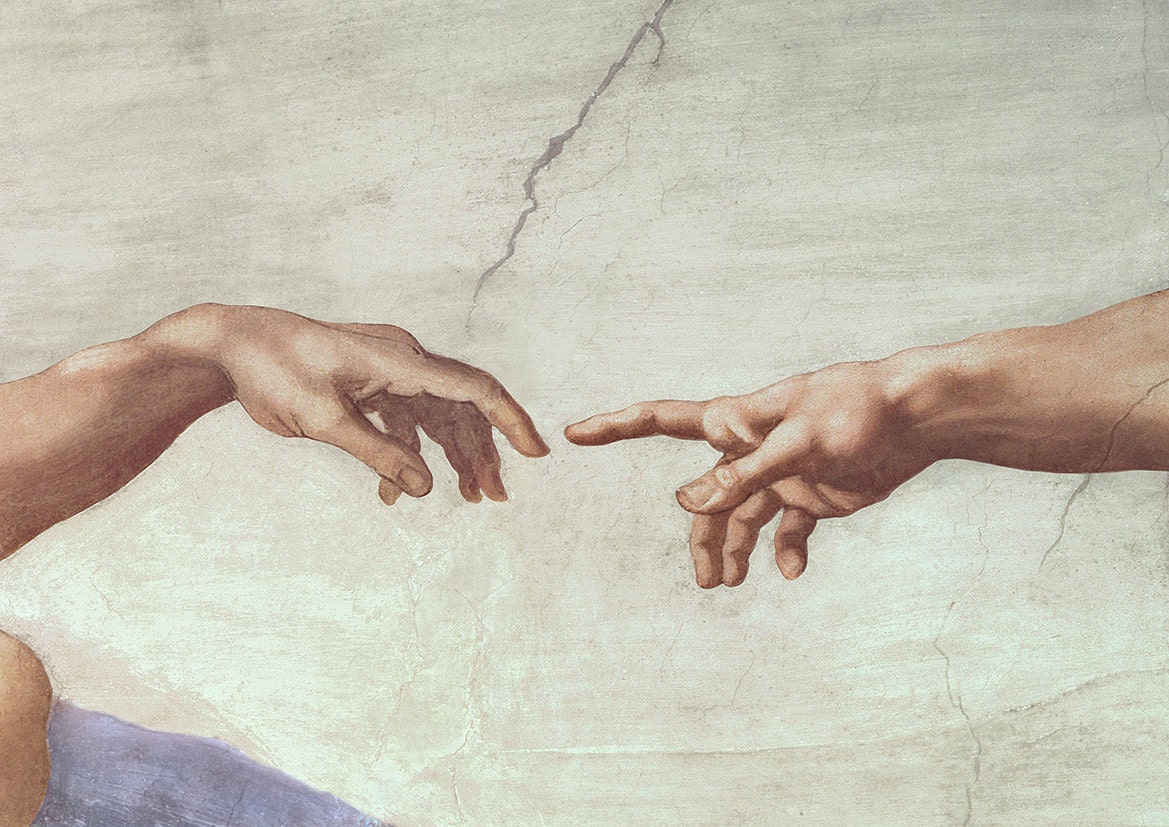
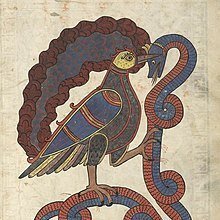
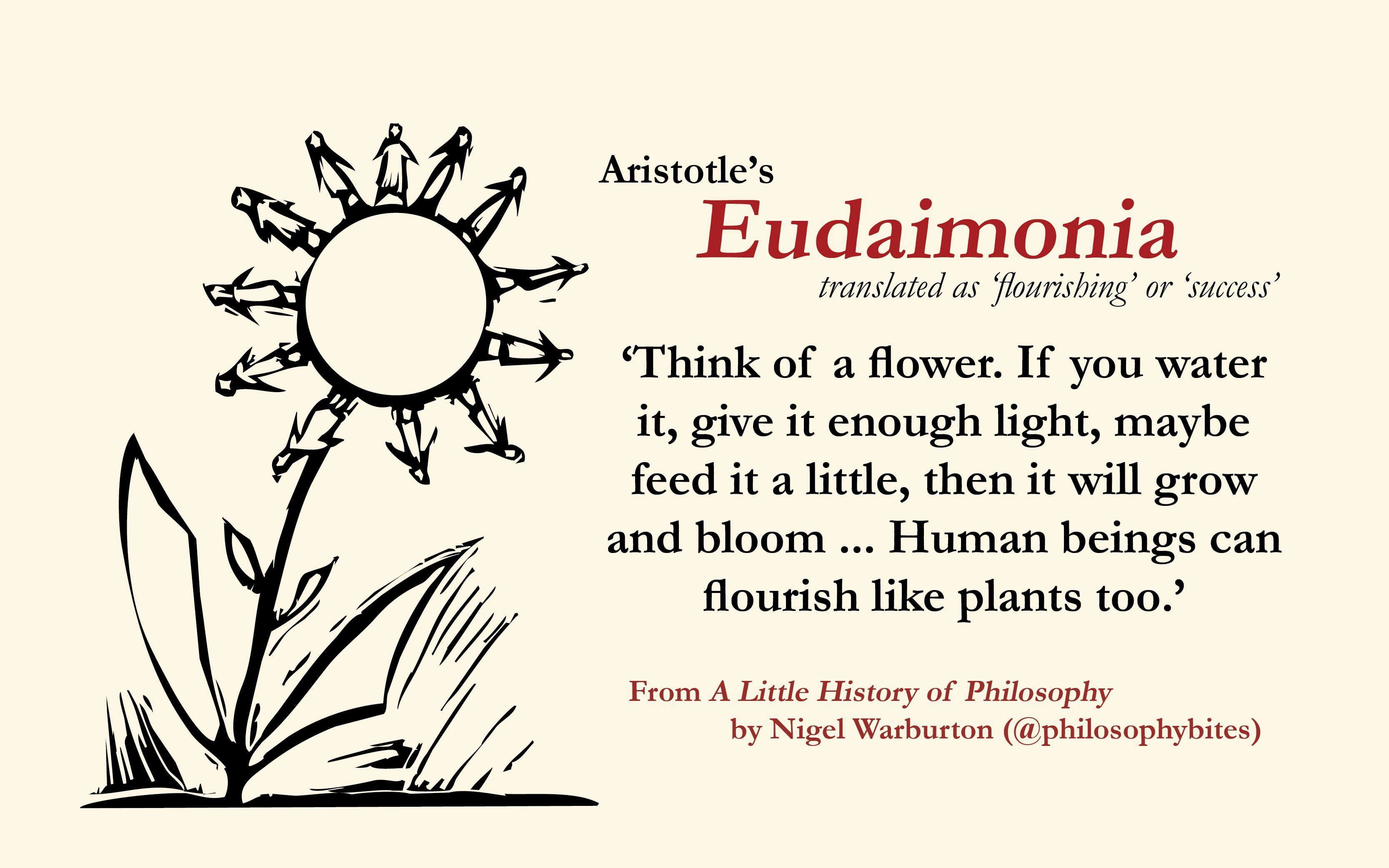

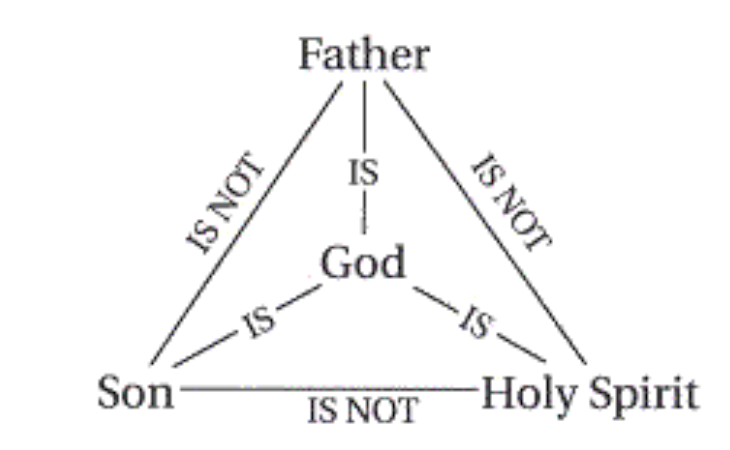
My summary of bhagavad gita
in Hindu Textual Studies
Posted
I agree and support this. The problem however, is that if some ethnicities adopts a more peacefull and tolerant perspective, while others do not, they can be outcompetet by the more «egoic» one.